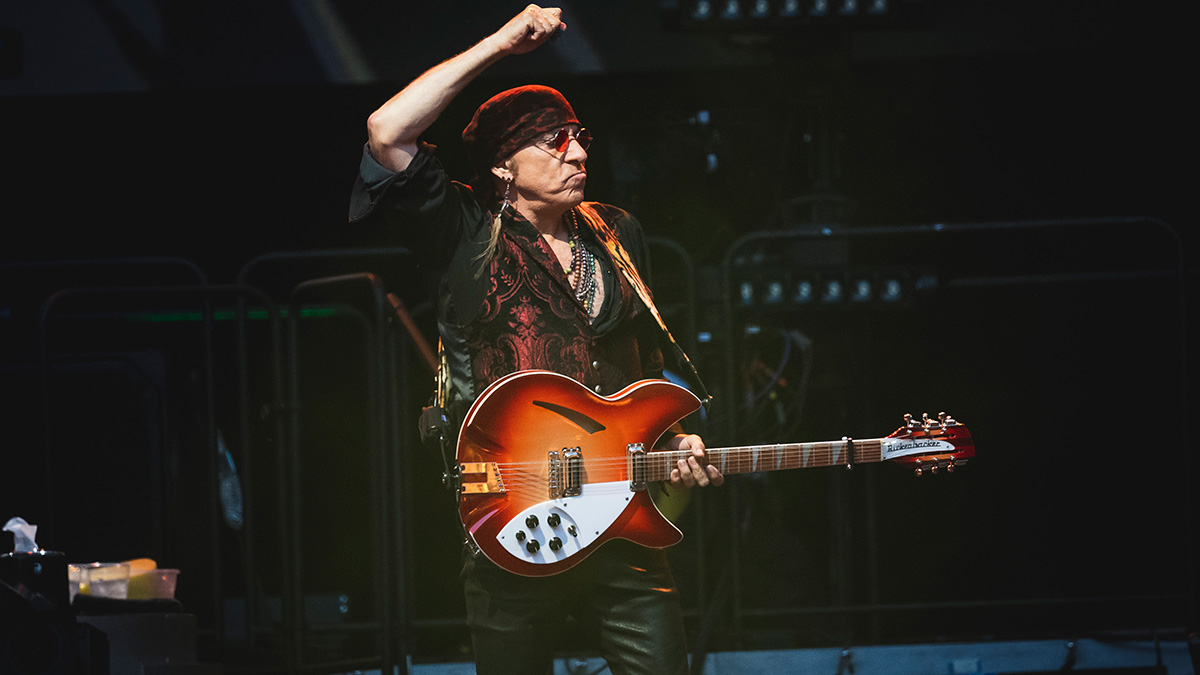“All my life I’ve carried with me this guilt and feeling of, ‘Jeez, if only I could have stayed in the band and yet done all these other things’”: Steven Van Zandt reflects on leaving Bruce Springsteen's E Street Band just before their breakthrough
During his initial tenure in the E Street band, Van Zandt was partially responsible for the iconic Born to Run guitar riff

All the latest guitar news, interviews, lessons, reviews, deals and more, direct to your inbox!
You are now subscribed
Your newsletter sign-up was successful
From being the lead guitarist in Bruce Springsteen's E Street Band to becoming an activist, accomplished actor, and songwriter, it’s safe to say that Steven Van Zandt has enjoyed a remarkably colorful career.
However, when Van Zandt decided to leave the E Street Band in 1984, he was at a crossroads in his career, and this pivotal decision would forever change the trajectory of his personal and professional life.
“All my life I’ve carried with me this guilt and feeling of jeez, if only I could have stayed in the band and yet done all these other things. Wouldn’t that have been wonderful? I realized when I analyzed it that is ridiculous and that wouldn’t have happened,” he admits in a new interview with The Guardian while promoting his upcoming documentary, Disciple.
“By staying in the band, there wouldn’t have probably been any solo records, there wouldn’t have been the Sun City record [a 1985 protest song that opposed South Africa’s apartheid policy], there wouldn’t have been The Sopranos [an American crime drama series] or Lilyhammer [a crime comedy-drama that was one of Netflix’s first original series]. Everything that Bill found a way to get into this film probably wouldn’t exist.
“I don’t know what I would have done. I would have perhaps produced a few things and who knows where I would have went? But if I’d continued to dedicate my life to Bruce Springsteen’s vision I would never have realized my potential. I still haven’t, obviously, but I got a few things done and I think they wouldn’t have gotten done if I’d stayed.”
Van Zandt met Springsteen around 1966 and they played together in several bands in the Jersey Shore music scene. In 1975, Van Zandt joined Springsteen's E Street Band after arranging the horns on Tenth Avenue Freeze-Out.
During his tenure in the band, he was partially responsible for the iconic Born to Run guitar riff, which Springsteen called “arguably Steve's greatest contribution to my music” in the Wings For Wheels documentary.
All the latest guitar news, interviews, lessons, reviews, deals and more, direct to your inbox!

He was also the lead guitarist for the Born to Run (1975-1977), Darkness (1978-1979), and The River (1980-1981) tours, as documented on the Born to Run 30th Anniversary Edition concert film.
In addition, he also shared production credits on Darkness on the Edge of Town (1978), The River (1980), and Born in the U.S.A. (1984). He officially departed the band in 1984, just as Springsteen achieved immense global success.
After establishing his solo career, he returned to the E Street band in 1995 and from 1999 onward, he shared guitar duties with Nils Lofgren and Springsteen.
Van Zandt's career takes center stage in his new HBO documentary, Stevie Van Zandt: Disciple, now available on Max.
Janelle is a staff writer at GuitarWorld.com. After a long stint in classical music, Janelle discovered the joys of playing guitar in dingy venues at the age of 13 and has never looked back. Janelle has written extensively about the intersection of music and technology, and how this is shaping the future of the music industry. She also had the pleasure of interviewing Dream Wife, K.Flay, Yīn Yīn, and Black Honey, among others. When she's not writing, you'll find her creating layers of delicious audio lasagna with her art-rock/psych-punk band ĠENN.


